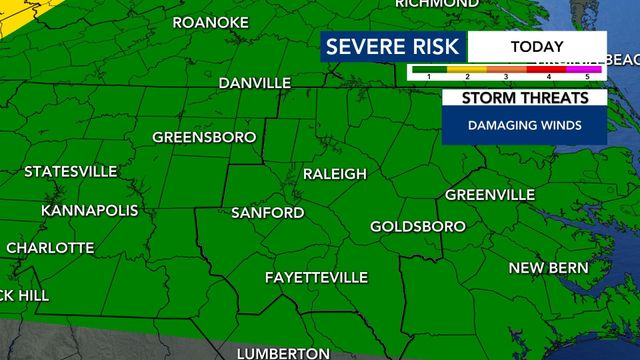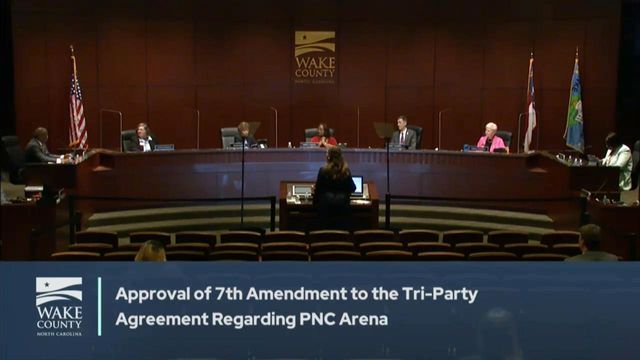Capitol Hill has a very long to-do list this month
Congress is returning to work Monday after a long August recess and must grapple with several unresolved and pressing issues, including legislation to quell mass shootings, passing a trade pact with Canada and Mexico, and finding compromise on government funding before a fast-approaching deadline at the end of the month.
In the House, Democratic support for an impeachment inquiry into President Donald Trump's alleged wrongdoings continues to gain momentum, even as investigators are expanding their probes into new areas of Trump's orbit.
Republicans and Democrats need to bridge their divides on policy issues this fall just as the contentious 2020 congressional and presidential election cycles are taking shape, with the balance of power on Capitol Hill and the White House at stake.

Impeachment
The House returns with the impeachment debate still swirling among House Democrats and the House Judiciary Committee is prepared to vote Thursday on a resolution laying out the procedures for its investigation now that it is actively considering moving to impeach Trump, a major step toward formalizing its sweeping probe.
A majority of the conference now supports launching an impeachment inquiry, with more than three dozen House Democrats throwing their support behind an inquiry over the August recess.
Still, House Speaker Nancy Pelosi remains skeptical, and moderate Democrats fear a full-fledged impeachment push could hurt the party's chances in 2020.
The Judiciary Committee is preparing to hit the ground running when Congress returns, broadening its investigation to focus on whether Trump has improperly enriched himself through his businesses while in office, as well as other questions about his conduct.
The committee will look into Trump's involvement in hush money payments to two women who allege past extramarital affairs with him before the 2016 election, as well as recent reports that Trump offered to pardon officials if they broke the law during the construction of his border wall. Democrats on the House Oversight and Judiciary committees are now also demanding documents and information about Vice President Mike Pence's decision to stay at Trump's resort in Doonbeg, Ireland, during his official trip, as well as Trump's recent suggestion that he would host the 2020 G7 summit at his National Doral resort.
McConnell is back
Senate Majority Leader Mitch McConnell fractured his shoulder in a fall at his home over the recess and had surgery to repair it. He hadn't been seen in public for weeks before appearing on the Hill on Monday morning, although he's done feisty radio interviews and authored op-eds over the break.
Gun talks
In the aftermath of three deadly mass shootings in Texas and Ohio, members of Congress have called for a range of potential responses to address gun violence.
Trump has said he wants to act on the issue, but the deep reservations about gun restrictions held by his advisers and GOP lawmakers could limit the scope of any bill Congress considers. A swath of White House officials and Republican lawmakers would prefer to focus on mental health and red flag laws rather than gun regulations, even as Democrats are signaling they will push hard for legislation to address background checks.
South Carolina Republican Sen. Lindsey Graham is working with Democratic Sen. Richard Blumenthal of Connecticut on a bill to establish a grant program for states to adopt red flag laws -- which would deny access through a court order to firearms to individuals deemed a risk -- but the plan still has a long way to go before conservative members who are worried about protections for due process would be likely to embrace it.
Facing even more hurdles is Pennsylvania Republican Sen. Pat Toomey's bill alongside West Virginia Democrat Joe Manchin to expand background checks for commercial gun sales. The bill failed in 2013 after it struggled to win GOP support, and there is no evidence yet that the dynamic has changed, though those senators have had discussions with the White House over the past several weeks.
Trump has not endorsed any specific approach, leaving Republicans in limbo as they wait for him to provide more guidance about what could be signed into law. If Trump doesn't come forward with a unifying plan, there may not be much bandwidth for a robust gun policy debate in the Senate during the month of September, as senators focus on shoring up appropriations. McConnell has said he expects to hear from Trump this week on what proposal he would support.
Military funds diverted for border wall
Expect to hear from Republican lawmakers this week if they support Trump's decision announced last week to use funds Congress appropriated for military construction projects in their states and overseas to build the border wall with Mexico after Congress refused to approve money for the controversial barrier.
A spokesman for McConnell said Friday the senator is "committed to protecting funding for the Ft. Campbell Middle School project" in his home state of Kentucky, a sign Trump may get pushback from Republicans.
Spending talks
Lawmakers have until the end of the month to reach a deal to fund government agencies or face a potential funding lapse.
While passage of a short term spending bill to keep the government open is expected, there is still no path forward on how the Democratic House and Republican Senate plan to reconcile their often starkly different spending priorities.
Senate Republicans plan to lump several bills together to try to take some of the pressure off before approving a continuing resolution at the end of the month, but Senate Democrats, who have the power of the filibuster, may not go along as they seek leverage in shaping final bills. The House is expected to vote next week on a clean continuing resolution to keep the government open and put pressure on the Senate to act.
Revising NAFTA
House Democrats continued to negotiate with the administration for labor, environmental, and pharmaceutical changes to Trump's revised NAFTA over August, and the talks are expected to accelerate during September.
On a call with members last week, House Ways and Means Chairman Richard Neal, a Massachusetts Democrat, didn't offer specifics about the timing of implementing legislation, nor clarity on the state of negotiations, according to a person familiar with the remarks.
As talks ramp up, leaders will have to balance the interests of progressive, labor-friendly members who want to see substantial changes — even if that means action on the deal gets pushed into next year — and moderate Democrats who want to strike a deal with Trump and hold a vote soon.
Just before recess, 14 Democrats, a dozen of them freshmen, urged Pelosi in a letter to reach an agreement early in the fall. "Canada and Mexico are by far our most important trading partners, and we need to restore certainty in these critical relationships that support millions of American jobs," they wrote. But Rep. Rosa DeLauro, a member of Pelosi's USMCA working group, suggested recently that a vote on the deal is likely to "seep into next year."
China tariffs
Trump's trade war with China reached a boiling point while lawmakers were away. His latest tariffs on Chinese goods are now in effect, with some GOP senators raising fears that the duties will hurt American consumers and damage the economy as a whole. But their anxieties aren't new, and the key dynamic remains the same: Both parties are hesitant to take any real action to end Trump's trade war, because they agree with his complaints about unfair Chinese trade practices like intellectual property theft. Congress wants to see a deal with the Chinese to address those concerns, and they have given Trump ample maneuvering room to do as he pleases throughout the negotiations.
Instead of rebuking his approach, Republicans are looking for ways to boost the economy headed into the 2020 election. Florida GOP Sen. Rick Scott is advocating for a middle class tax cut that would be equal to the amount gathered in tariffs from China, and top White House economic adviser Larry Kudlow has thrown his support behind the plan. Expect more specifics on the proposal, and more clarity on whether such a bill could win support among the rest of the Senate GOP conference, when lawmakers return.
Balance of power
Over the recess, several House Republicans announced they would not seek reelection, meaning there are now more than a dozen who either didn't think they could get reelected or would be mired powerlessly in the minority if they were. This is a sign Democrats are in a good position to maintain majority control after the next election.
But in the GOP-led Senate, Democrats have a shot to win control if they can hold all their seats, which won't be easy, and pick up enough of the GOP seats that are in play, including in Maine, Arizona, Colorado, and North Carolina. If Trump wins reelection, Democrats would need four seats to control the Senate. If he is defeated, Democrats would need only three.
Nominations
McConnell plans to keep up his push to confirm federal judges and other Trump nominees. This has been a major source of mutual pride for Trump and McConnell, who told an interviewer last week that Republicans won't leave a "single vacancy" on the courts when they're done.
McConnell also said he would move to confirm a Supreme Court vacancy should one occur between now and the election, something he refused to do in the last year of President Barack Obama's term. With Associate Justice Ruth Bader Ginsburg facing health challenges, Democrats are worried.









